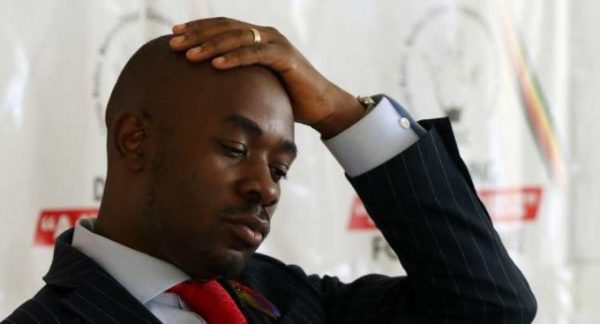
Tapiwa Gomo
IT pleasing to see that the media, mainly independent media, have begun to remind opposition parties and civil society organisations in the country that preparations for 2023 election need to start now. Election time is also opportunistic moment seeing that new political parties are emerging as if we do not have more than enough already.
Preparing for election in the Zimbabwe context entails several things but here I will focus on two major factors.
First, the usual and easier is getting political parties ready for the campaign trail, procuring cars, getting the funding, drafting manifestos, getting the regalia ready and everything else that helps to get the message across. I say easier because most parties have massive experience in this area while others use these as cash cows.
The second phase of preparation is to ensure conditions are conducive for free and fair elections.
In the Zimbabwe context, this is the most crucial phase which determines the real impact of each vote.
We can mobilise people to register and to go and vote when the value of their vote is not guaranteed.
Everyone seems to be aware of the importance of this phase, but there seem to be dearth of ideas on how to revive and reinvigorate the reform agenda.
- Chamisa under fire over US$120K donation
- Mavhunga puts DeMbare into Chibuku quarterfinals
- Pension funds bet on Cabora Bassa oilfields
- Councils defy govt fire tender directive
Keep Reading
Adding to the lack of clarity on the way forward is politics of personalities that vitiates politics of issues and this has weakened the unity of purpose to advocate for reforms.
Last week, Morgan Komichi of the Movement for Democratic Change (MDC-T) was criticised and attacked for suggesting that the 2023 be suspended to allow for reforms.
In July 2020, MDC Alliance leader Nelson Chamisa was praised for saying the same and threatening to stop the 2023 elections if necessary reforms were not implemented. He said“…there are no 2023 elections without reforms. We have the capacity to say there are no elections… We want elections with comprehensive electoral and political reforms.”
Sadly, politics of personalities continues to divide political leaders who share the same assessment of the situation.
This is impairing their ability to consent and unite on the way forward based on that shared assessment. But then, what were they busy with between last elections and now which stopped them from pushing for reforms?
Participating in the 2023 election without reforms is repeating the same old mistakes expecting a different outcome.
Of course, there is a lingering question on whether the ruling party is ready to reform itself out of power. It is stupid to expect them to voluntarily allow reforms.
Human nature does not accept loss of any form. But does not make it right or impossible to address the ruling party’s hold on power and hand it back to the people?
The ruling party cannot reform itself out of power has become a cliché used as an excuse for lack of strategy by the opposition.
The affairs of the country and the future of the nation can no longer be constrained by or left to the whims of the ruling party. Elections are about the wishes of the people.
When those who hold public office are not prepared to allow democratic space, to allow the wishes of the people to prevail or to be accountable to them then the people are left with no choice but to take the struggle a gear up into some form revolution.
When negotiations fail, it is only resistance that can address resistance.
Under the leadership of the late Morgan Tsvangirai, when opposition politics was real not the armchair and lame leadership he left behind, there has were several moments when the ruling party was put into panic mode.
He had his weaknesses but taking the ruling party by the horns was not one of them.
He knew that victory is not delivered via social media or on a silver platter when dealing with a rogue ruling party.
It was him who mobilised all parties and civil society organisations to successfully vote against the draft constitution in 2000.
That was the first time the ruling party tested a major loss. They responded by shutting down democratic spaces, including imposing laws such as Access to Information and Protection of Privacy and Public Order and Security Acts and amendment to the citizenship law.
Even as the ruling party had these and other state apparatus, he made an impact in 2002 Presidential elections.
In 2003, he led the final pushed which caused major panic within the echelons of power.
He did this against court orders and police instructions but the impact was still felt by those who sat in power at the time.
He earned respect and drew sympathy from regional and international communities, opportunities which he used to seek reforms and to pressure the ruling party to behave. He would later be arrested and charged with treason.
Perhaps, the 2008 election was the last moment the opposition made a meaningful impact both on the ground and negotiation table.
Tsvangirai was on the ground when scenes of violence prevented a rally in Harare.
When he announced his withdrawal from the election rerun, he knew the pressure he was placing on the ruling party and indeed they yielded forcing all parties to the negotiation table.
The outcome of these was the government of national unity.
These few examples tell us that it is possible to push for reforms and that reforms will not come via social media advocacy alone.
The ruling party is happy and comfortable with the state of affairs and will resist any efforts for reforms. It is natural but not right.











